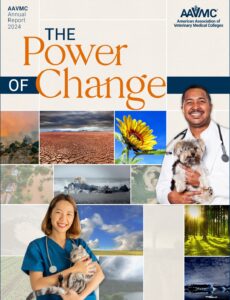Exploring Veterinary Career Options
The following list is not exhaustive but provides an overview of careers where graduates of veterinary medical schools can effectively apply their Doctor of Veterinary Medicine (DVM) degrees.
- Private practice, either general practice or (with advanced training and experience) a specialty field, such as ophthalmology, orthopedics, aquatic animal medicine, marine biology, wildlife animal medicine, or emergency animal medicine.
- Corporate veterinary medicine, for example, with corporations that provide veterinary care, test human drugs for safety, or produce animal-related products.
- The Federal Government employs veterinarians through the United States Department of Agriculture (USDA), National Institutes of Health (NIH), Centers for Disease Control (CDC), and Food and Drug Administration (FDA) working on biosecurity, environmental quality, public health, meat inspection, regulatory medicine, and agricultural animal health, or the investigation of disease outbreaks.
- The U.S. Army Corps and U.S. Air Force offer career opportunities in areas such food safety and military working dog veterinary medicine. The military also provides advanced training in specialty areas for those who commit to service.
- Research, either in a university setting or with companies that produce animal-related products or pharmaceuticals.
- Teaching, either in academia or non-professionals schools. With 40 percent of aging faculty in academia eligible for retirement over the next 10 years, projections indicate an increasing need for qualified academics to teach in all disciplines of veterinary medicine.
- Public Health, particularly with governmental agencies such as the United State Public Health Service, which works to control the transmission of animal-to-human (zoonotic) diseases.
- Food supply medicine, with either the government or a food animal company.
- Global Veterinary Medicine, in private practice or with international agencies working in areas such as food production and safety or emerging diseases.
- Public Policy, working for governments on animal and zoonotic diseases, animal welfare, public health issues, or as consultants with non-governmental agencies.
- Shelter medicine, working with communities,and private or public agencies to ensure the health and well being of animal populations housed in shelters.
There are additional opportunities available with state and municipal governments, nonprofits, and in areas that require a background in comparative medicine.





SHARE